Name the specific culture/time period from which this artwork hails:
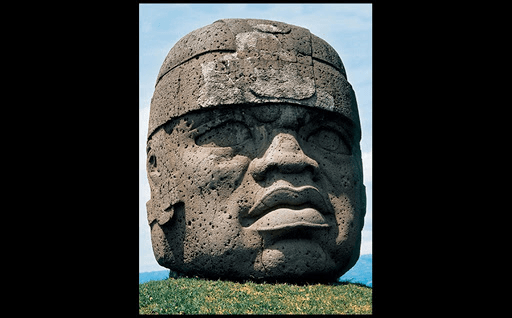
What is the Olmec?
This is the term in Buddhism for stories associated with the previous lives of Shakyamuni, the historical Buddha.
What are Jataka tales?
Identify the culture attributed to the image below:
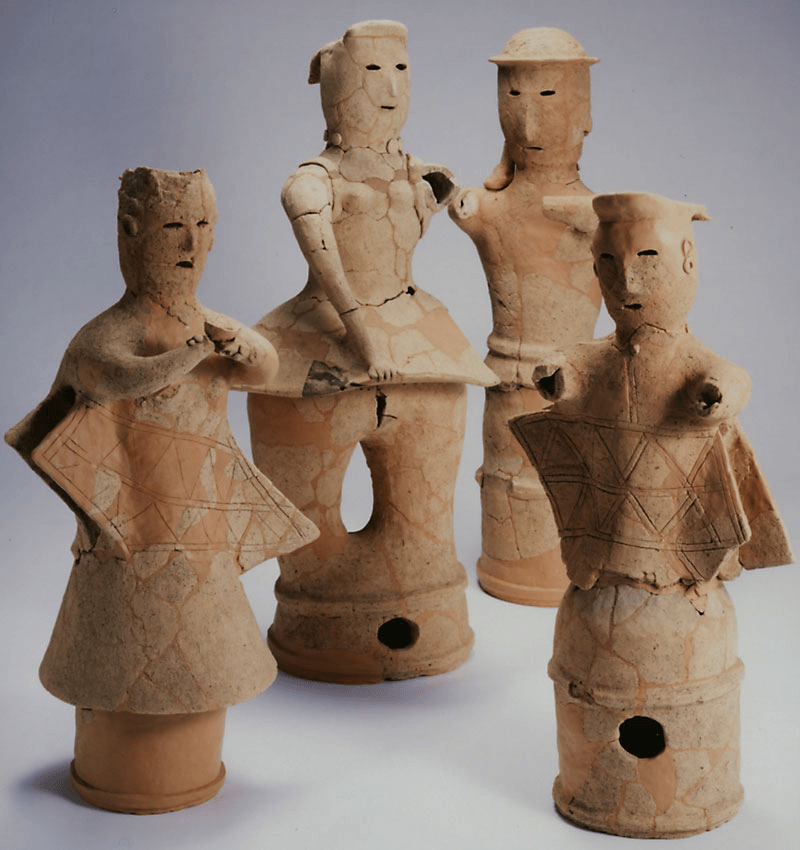
What is Kofun Period, Japan?
- Haniwa are asymmetrical
- They are not considered with technical viruosity
- Skewed proportions
- Likely served as a link between dead and living
Mesoamerican cultures, while diverse, were linked by similarities, especially a cosmic ritual of political and religious significance that took the form of a
A. Bloodletting ceremony
B. Ballgame
C. Procession
D. Birthing rite.
What is B. Ballgame?
What is shown in the image below, as a symbol of the Buddha's teaching?

What is a chakra?
Name the specific culture/time period from which this artwork hails:
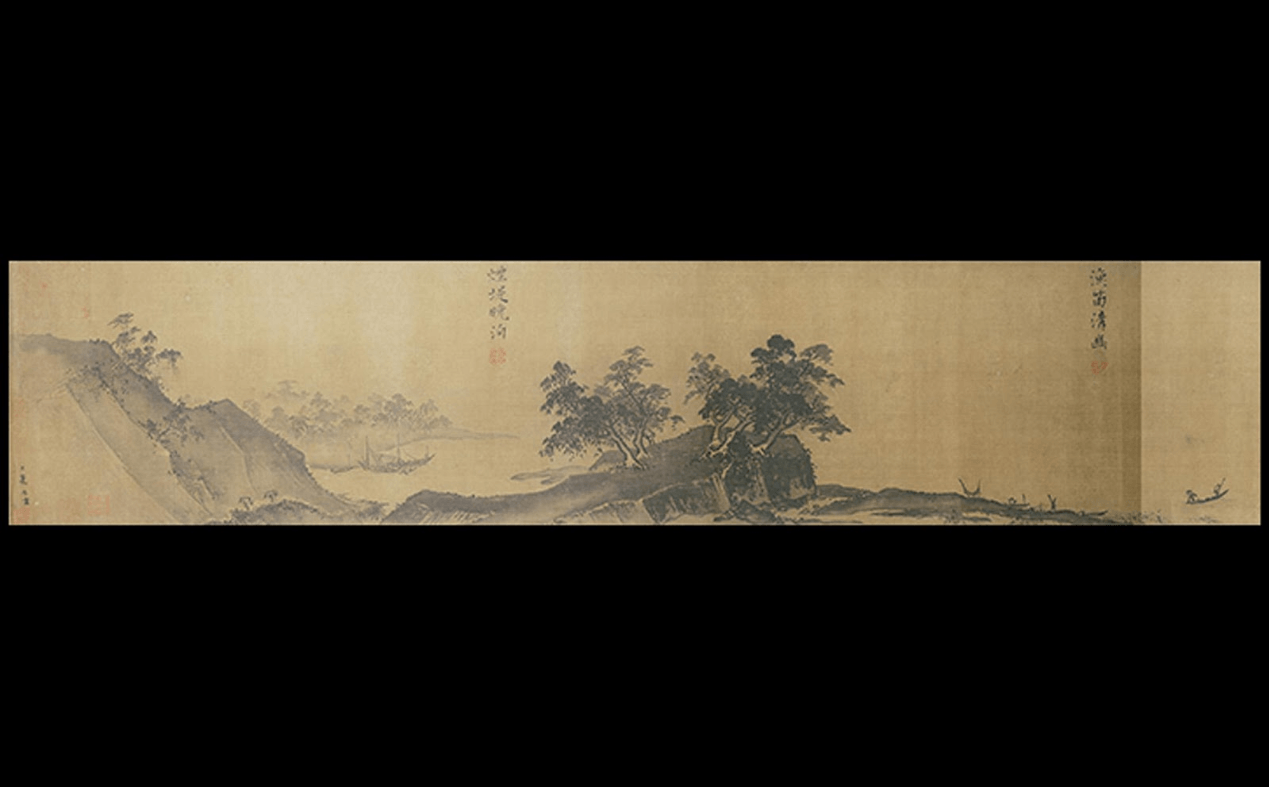
What is the Southern Song Dynasty, China?
This is the term used to describe a painted image that depicts the Amida Buddha and other Buddhist deities welcoming the soul of a dying believer to paradise.
What is raigo?
Identify the culture attributed to the image below:
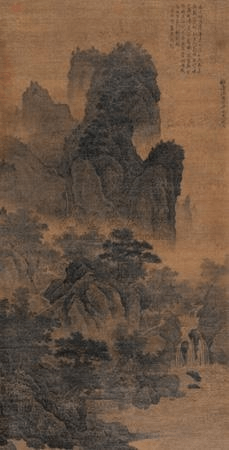
What is Northern Song Dynasty, China?
- Landscape painting focus to express li (eternal essence) through qi (matter)
- Gradient, no harsh color transitions
- Majestic and austere
In China, calligraphy is closely related to the art of painting and considered
A. a source of meditation and spiritual renewal.
B. an expression of moral values and philosophical beliefs.
C. a reflection of the writer’s character.
D. a necessary requirement to attain enlightenment.
What is C. A reflection of the writer's character?
During which dynasty did the ideals of Daoism and Confucianism become central to Chinese thought?
A. Han
B. Zhou
C. Xia
D. Shang
What is A. Han?
Name the specific culture/time period from which this artwork hails:
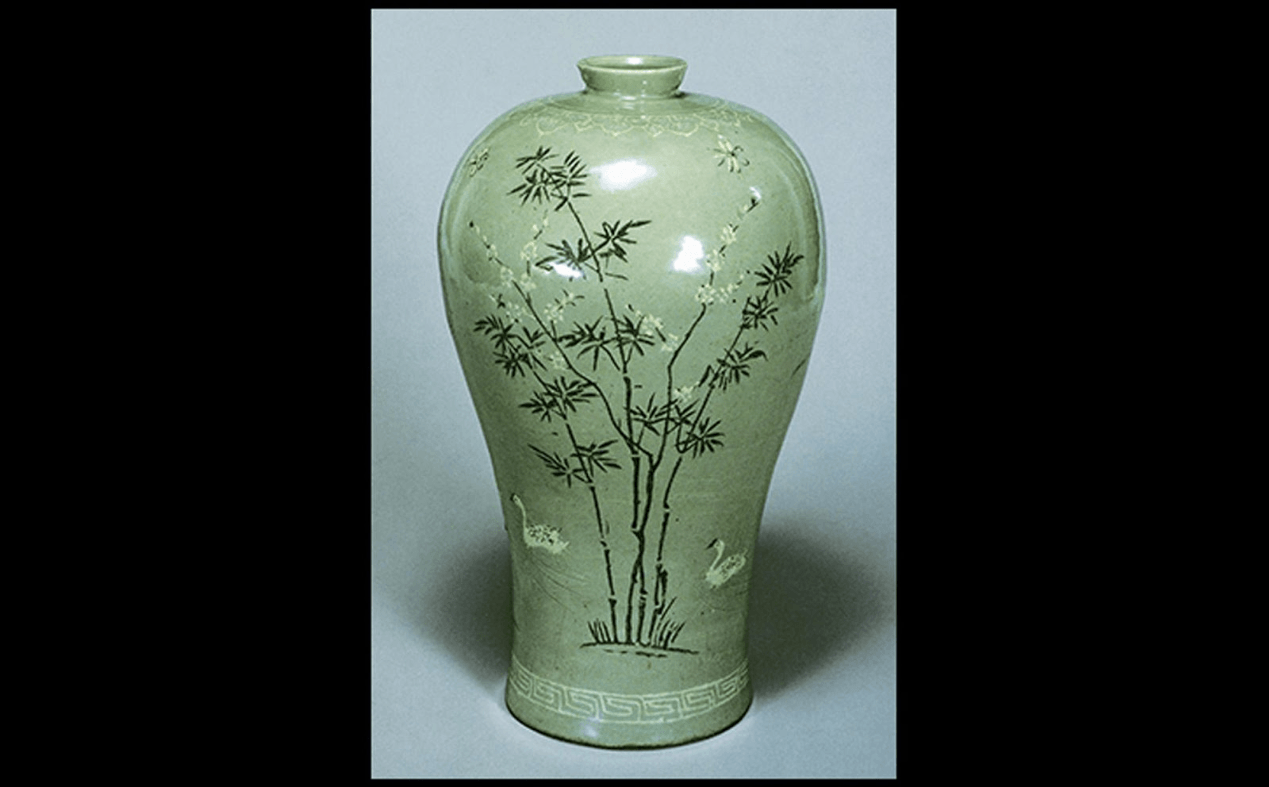
What is the Goryeo Dynasty, Korea?
This is a square or rectangular bronze vessel with four legs used for ritual offerings in ancient China during the Shang dynasty.
What is a fang ding?
Identify the cultural style attributed to the image below:
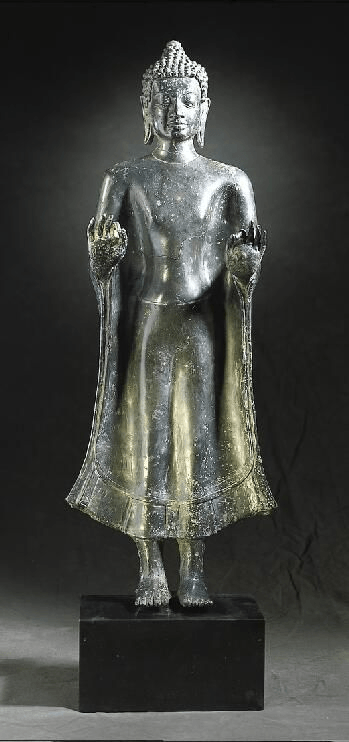
What is the Mon Dvaravati Style?
- Same mudra in each hand
- Distinctly flattened double robe
- The robe has a capelike angularity at the base
What visible characteristic distinguishes Gandhara sculptures of the Buddha?
A. the ushnisha
B. the use of red sandstone
C. the defined folds in the robe
D. the Abhaya mudras
What is C. The defined folds in the robe?
How would this Moche object have been worn?
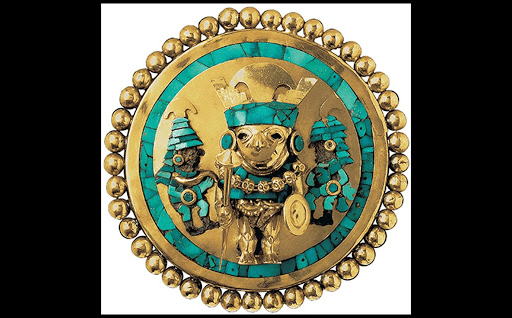
What is in the earlobe, like a gauged ear?
Name the specific culture/time period from which this artwork hails:
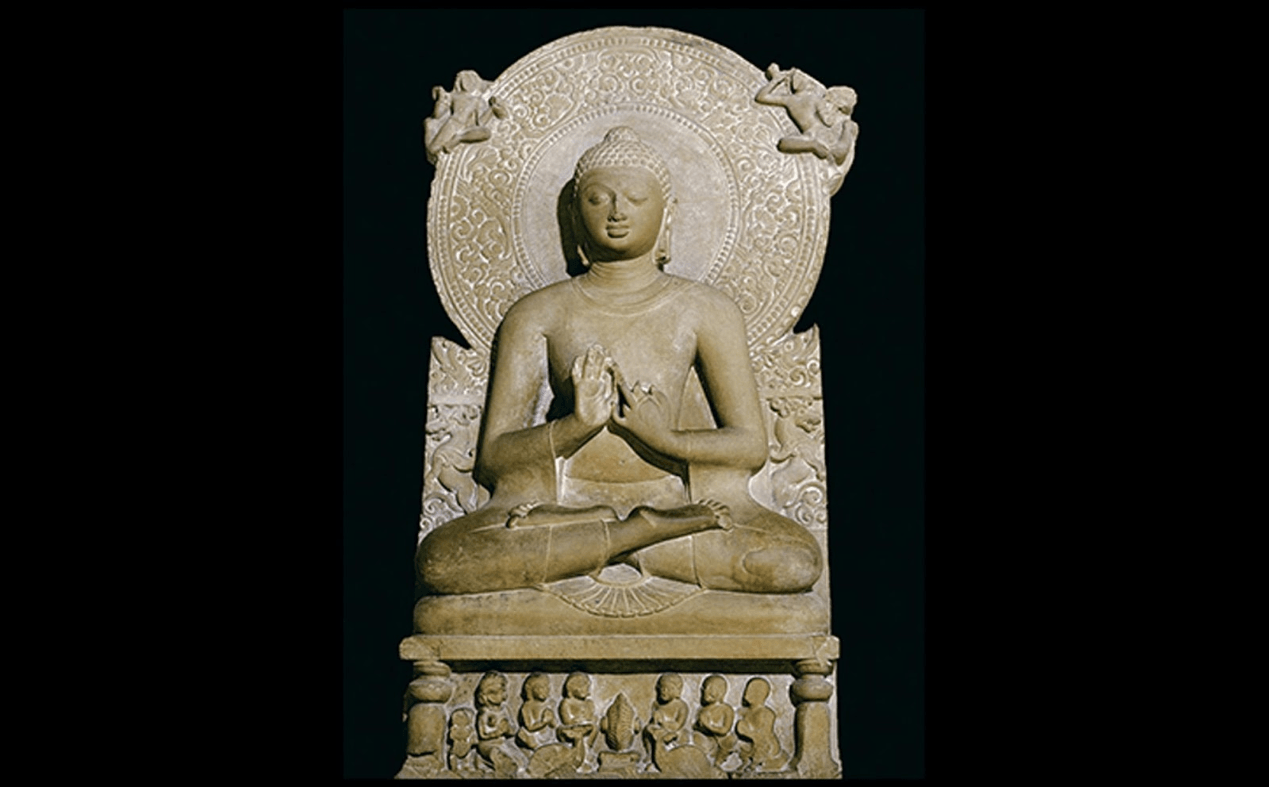
What is Gupta Period, India?
This is a type of architecture seen in Mesoamerica, especially in Teotihuacan, with a name that literally means "sloping base and entablature."
What is a talud-tablero?
Identify the specific culture attributed to the image below:
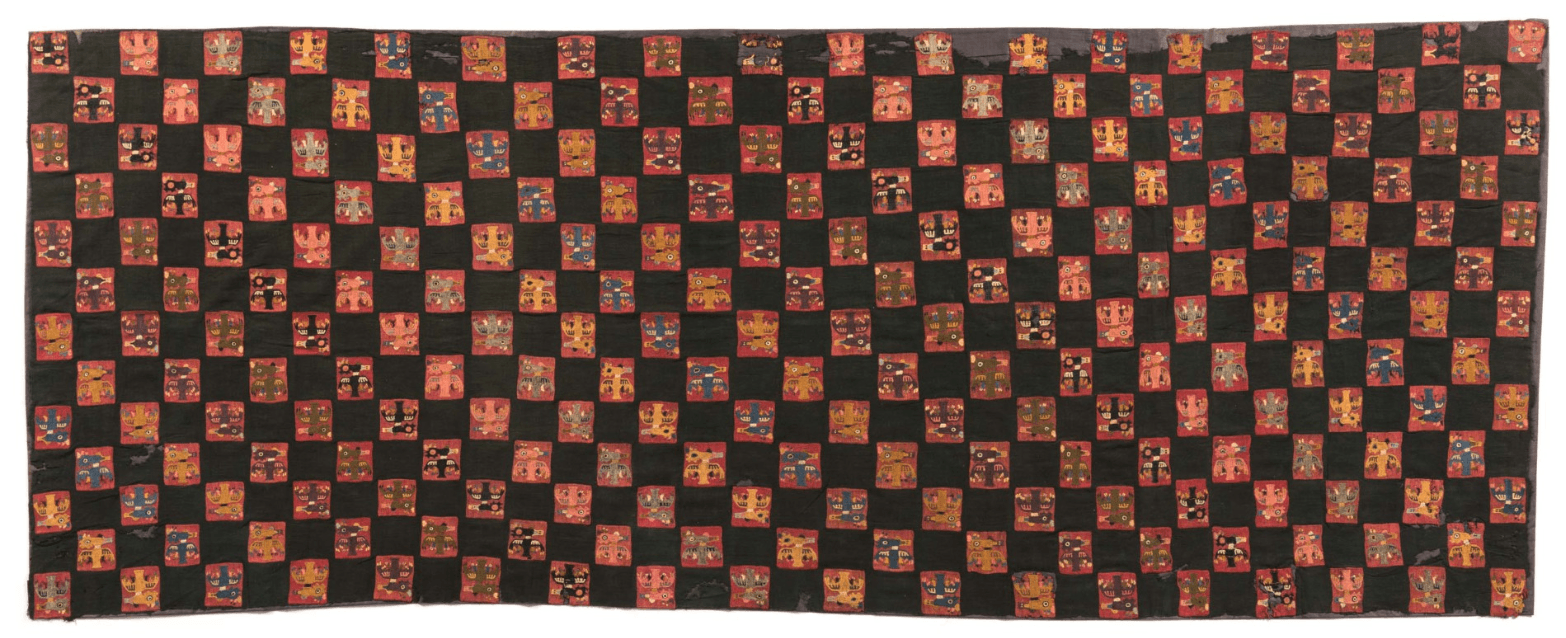
What is the Paracas Culture?
- Repeated motifs
- Textiles were a source of wealth for the Paracas Culture
- Dyeing was an adance of the Paracas culture
Which characteristic of Japanese art was evident in haniwa figures of the Kofun period?
A. innovative glazing techniques
B. technical sophistication
C. a love of asymmetry
D. the preference for wooden sculpture
What is C. A love of asymmetry?
Fill in the blanks:
It is sometimes said that the Chinese are ________ in public and _________ in private.
What is Confucianists; Daoists?
Name the specific culture/time period from which this artwork hails:
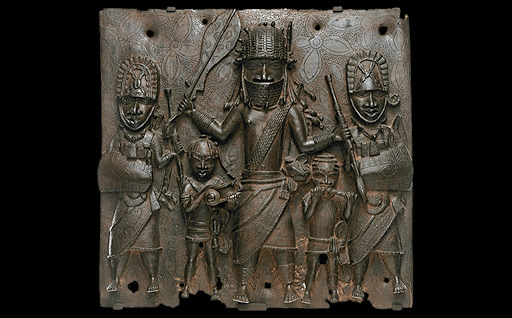
What is the Edo Kingdom, Africa?
This is an object created in a different material from an original but made to resemble it in form, shape, or texture.
What is a skeuomorph?
Identify the specific culture attributed to the image below:
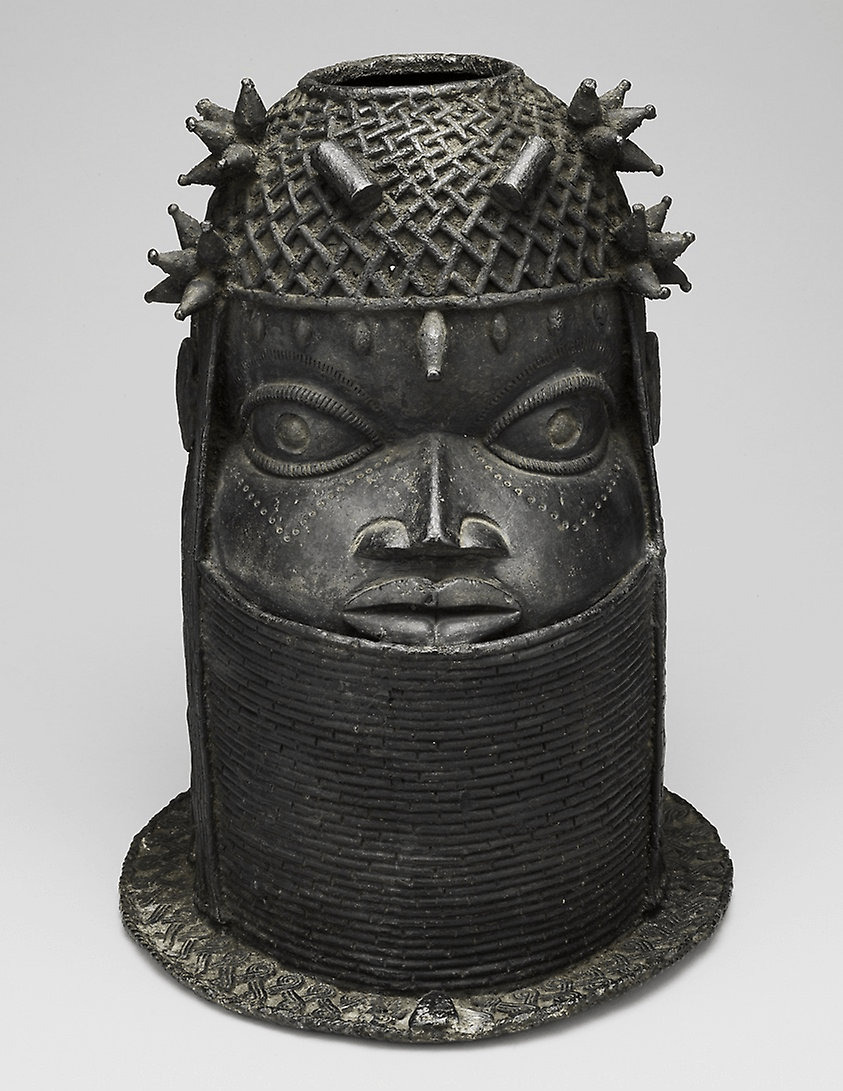
What is Edo Kingdom, Africa?
- Brass works were commissioned by rulers
- For the Benin in Edo, the head was conceived as a set of power and authority
- Patterns on the face are suggestive of scarification
Which of the following features is a characteristic of West African mosques?
A. strong, local, and quarried stone
B. battered walls that slope inward toward the top
C. projecting wooden beams called torons
D. square or circular plans
What is C. projecting wooden beams called torons?
From what culture that we have previously studied did the Nubians get their name?
What is Roman?